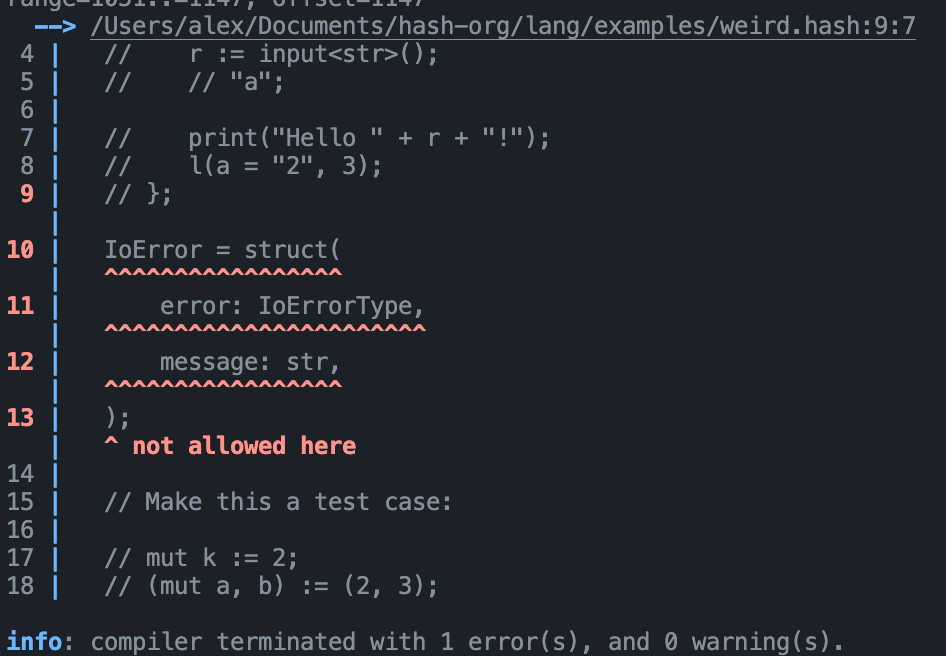In the following error report:

The highlighter mistakingly highlights the 9 line number. The span of the expression does not actually begin on the 9th line. This might be a mistake within the lexing implementation or a miscalculation within the report offset to (col, row) calculation. It's clear that the line of the span is for some reason being recorded as the end of line 9 where there is a \n character at the end.
Further investigation yielded that the actual span of expression (as printed from the raw source is):
loc=134:195, actual="IoError = struct(
error: IoErrorType,
message: str,
);"
Ideally, the report should not highlight the line number 9, like so:

This could be fixed by changing offset_col_row by not counting the \n in the case of the initial span offset, an implementation could be:
pub(crate) fn offset_col_row(offset: usize, source: &str, non_inclusive: bool) -> (/* col: */ usize, /* row: */ usize) {
let source_lines = source.split('\n');
let mut bytes_skipped = 0;
let mut total_lines: usize = 0;
let mut last_line_len = 0;
let mut line_index = None;
for (line_idx, line) in source_lines.enumerate() {
// One byte for the newline
let skip_width = line.len() + 1;
// Here, we don't want an inclusive range because we don't want to get the last byte because
// that will always point
let range = if non_inclusive {
bytes_skipped..bytes_skipped + skip_width
} else {
bytes_skipped..bytes_skipped + skip_width + 1
};
if range.contains(&offset) {
line_index = Some((offset - bytes_skipped, line_idx));
break;
}
bytes_skipped += skip_width;
total_lines += 1;
last_line_len = line.len();
}
line_index.unwrap_or((
last_line_len.saturating_sub(1),
total_lines.saturating_sub(1),
))
}
bug error-reporting

